It’s hard not to be impressed by a golfer who cruises to victory at a major in dominant fashion, but most fans of the sport would probably prefer some drama on the final day of the tournament. The British Open has routinely checked that box, which includes the instances where competitors had to stage a sizeable comeback on the last 18 holes to earn the right to hoist the Claret Jug.
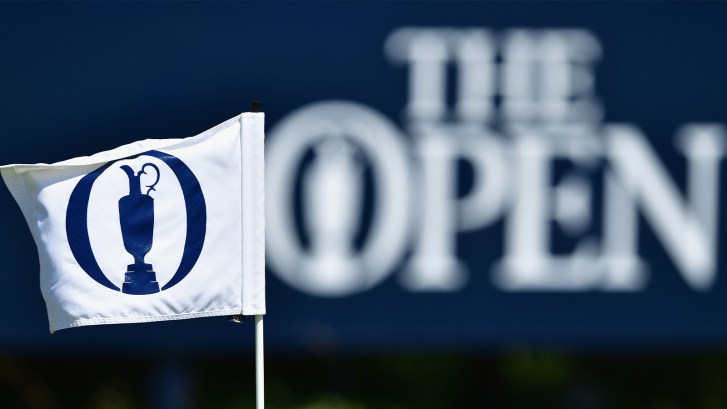
Getty Image
It goes without saying you’re in a good spot to win The British Open if you head into Sunday at the top of the leaderboard, but there have been plenty of occasions where the golfer ahead the reset of the field has fallen to someone who was able to unseat them over the course of the final round.
Some of those “comebacks” have only required competitors to overcome a deficit of one or two strokes, but there are plenty of others who got the win in decidedly more dramatic fashion.
As you might expect, the records for the earlier iterations of a tournament that was first held in 1860 aren’t exactly exhaustive, so this only takes into account the comebacks that have transpired at “The Open” since the start of the 20th century.
Cameron Smith: 4 Strokes (2022)
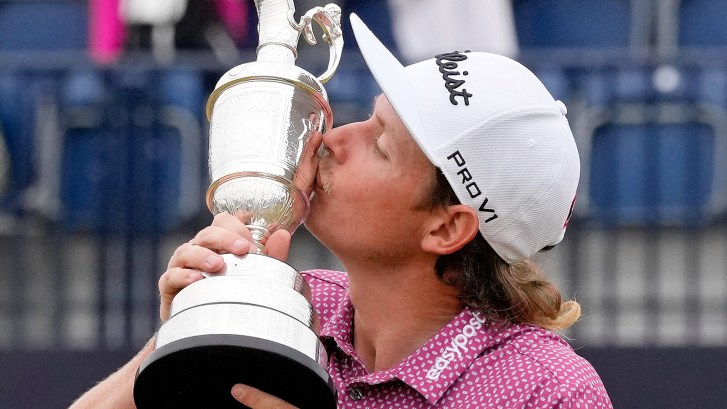
Michael Madrid-Imagn Images
There have been six guys who trailed by exactly four strokes heading into the last round of The British Open, and we’re going to start with the most recent and work our way backward.
Viktor Hovland and Rory McIlroy were both tied for first at -16 at St Andrews in 2022 after each man started the major with a 66-68-66 run, and Cameron Smith and Cameron Young were tied for second and four strokes behind them.
Hovland ended up collapsing with a 74, and while Rory was able to shave two more strokes off of his score with a 70, Smith rebounded from the 73 he shot on Sunday with a 64 that gave him a win over the Other Cameron by a stroke while finishing at -20 (tying Henrik Stenson for the lowest total score in the history of the tournament).
John Daly: 4 Strokes (1995)
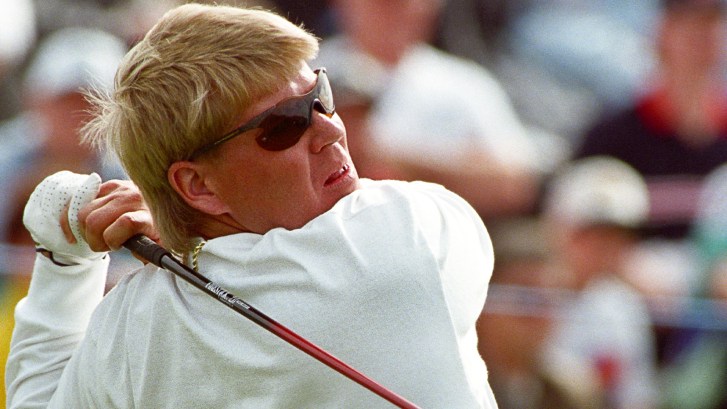
The Arizona Republic-Imagn Images
John Daly was one of four men sitting at -5 and in a tie for fourth behind Michael Campbell (-9) when play wrapped up on Saturday at The Old Course in 1995.
Daly entered the clubhouse with a one-stroke lead after improving to -6, and both Campbell and Costantino Rocca had the chance to tie him and force a playoff heading into the 18th hole.
The latter was able to do exactly that, but the beloved American cruised to victory over his Italian opponent by beating him by four strokes in their four-hole showdown to get his second and final major victory.
Gary Player: 4 Strokes (1959)
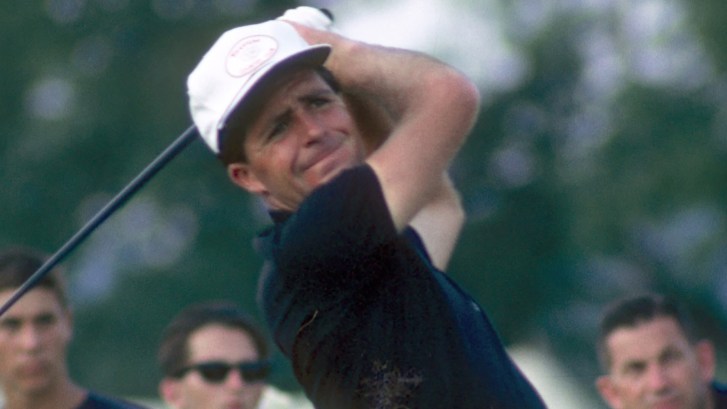
Malcolm Emmons-Imagn Images
Gary Player won The British Open three times, and while he had to overcome a two-stroke deficit to get his second victory in 1968, he faced a steeper uphill battle in his quest to get his first.
The legendary golfer was still looking for his first major when the tournament was held at Muirfield in 1959, and he was tied for tenth and four strokes behind Fred Bullock and Sam King, the co-leaders who had the lead before the final 18.
Both of those men ended up over par, but Player was able to card a 68 to get down to where they were when the last round began and get the win by a couple of strokes.
Dick Burton: 4 Strokes (1939)
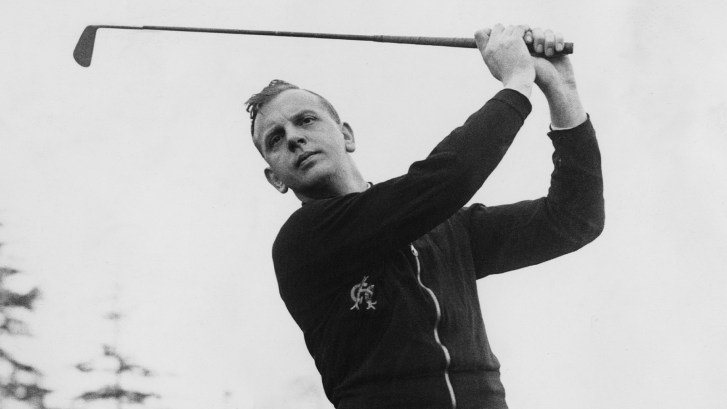
Getty Image
We’ve reached the “It Happened So Long Ago The Only Photos Of These Guys Are In Black And White” Era, and we’re kicking things off with Dick Burton.
As was the case with Player, Burton ended up at even par after three rounds at St Andrews in 1939, while John Fallon had a two-stroke lead over the rest of the field at -4.
However, he choked things away with a 79 while Burton capped off his run with a 71 to finish at -2 to beat Johnny Bulla by two strokes.
Jock Hutchison: 4 Strokes (1921)

Public Domain
Jack “Jock” Hutchinson hailed from St Andrews and used that edge to his advantage when The Open was hosted at The Old Course in 1921.
He was four strokes behind Jim Barnes and Sandy Herd prior to the start of the last 18 holes, but he ultimately earned the right to face off against Roger Wethered, an amateur, in a playoff.
The two men settled the score over the course of 36 holes played on the same day, and Hutchinson earned his second (and last) major victory in decisive fashion by beating Wethered by nine strokes.
Phil Mickelson: 5 Strokes (2013)
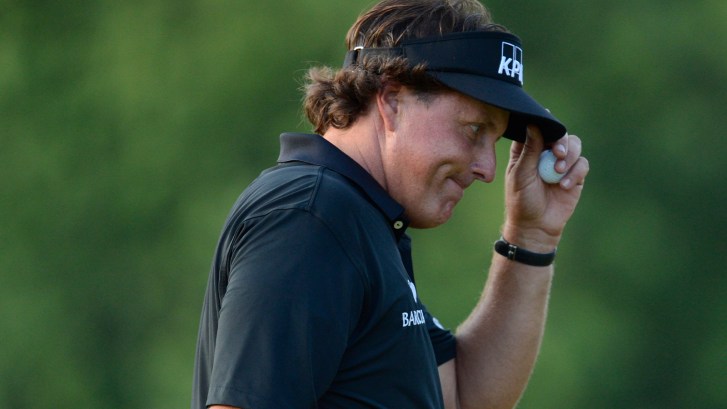
John David Mercer-Imagn Images
We’re back to pictures in color (for now) courtesy of Phil Mickelson, who is one of three men who had to crawl out of a five-stroke hole to win The Open.
Lee Westwood had a two-stroke lead on the rest of the field following the third round at Muirfield in 2013, while Lefty was five strokes out of contention and tied for ninth.
However, he topped the rest of the guys contending on Sunday with the 66 that propelled him to -3 and finally got The British Open victory that had evaded him by three strokes.
Justin Leonard: 5 Strokes (1997)
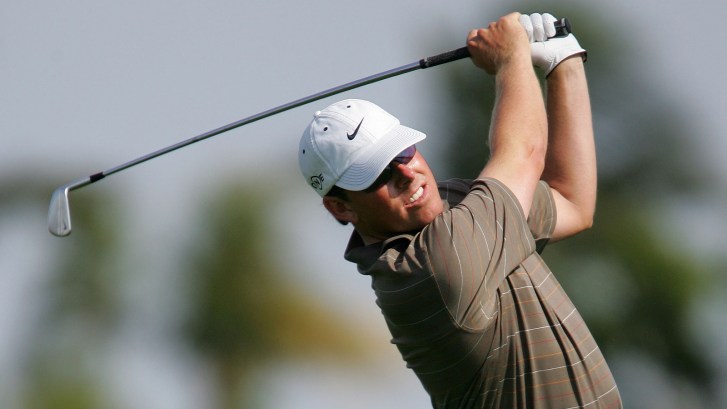
Jason Parkhurst-Imagn Images
Justin Leonard’s comeback transpired at Royal Troon in 1997, as he finished his third round at -6 and was sitting in a tie for third while five strokes behind leader Jesper Parnevik.
However, Leonard sucked most of the drama out of Sunday by shooting a 65 to leap into first place while beating Parnevik and Darren Clarke by three strokes.
Tommy Armour:: 5 Strokes (1931)
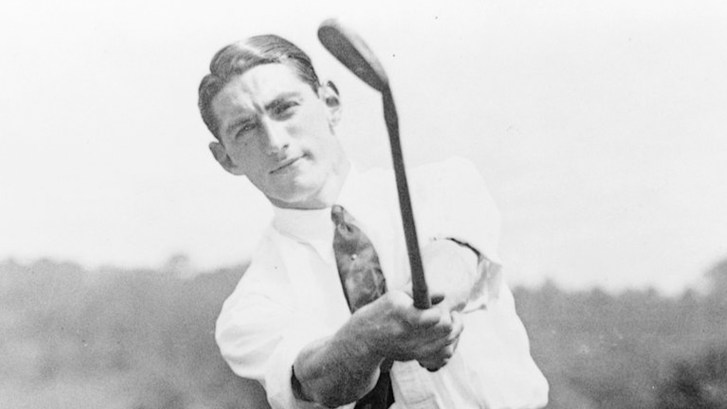
Public Domain
I promise this is the last guy who will appear here in black and white, but I have to include the man who earned a spot on this list with his comeback at Carnoustie in 1931.
Tommy Armour was one of three men tied for sixth at +9 before José Jurado took a five-stroke lead into the final round. The Argentinian dropped four shots to fall to +9, and his American opponent gained one with the 71 that gave him a one-stroke victory.
Ernie Els: 6 Strokes (2012)
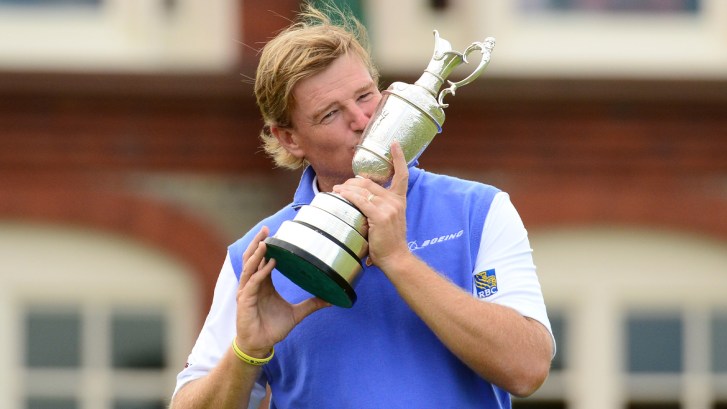
Kyle Terada-Imagn Images
Ernie Els was a decade removed from his first win at The British Open when the major descended upon Royal Lytham & St Annes in 2012, and it didn’t seem like the man who was in the twilight of his career was going to be a top contender.
That was sort of still the case ahead of the final round, as The Big Easy was six strokes behind Adam Scott in a tie for fifth place.
The 68 he shot on Sunday wasn’t necessarily superb, but it was still enough to erase the deficit during a round where most of the guys near the top of the leaderboard struggled to get their game clicking before Els topped Scott by a stroke.
Padraig Harrington: 6 Strokes (2007)

Bob Donnan-Imagn Images
Padraig Harrington had back-to-back victories at The Open in 2007 and 2008, and while he had to rally in the final round both times, the first win was a significantly tougher task.
The Irishman was six strokes behind Sergio Garcia prior to the final round at Carnoustie and one of seven golfers sitting in a tie for third behind the Spaniard (who had a three-stroke lead over Steve Stricker).
Garcia ended up losing a couple of strokes while Harrington gained four to force a playoff before taking advantage of the bogey his opponent posted on the first hole en route to a one-stroke win.
Paul Lawrie: 10 Strokes (1999)

Getty Image
Paul Lawrie not only pulled off the biggest final round comeback in the history of The British Open but the largest one to unfold in any major when he pulled of a wildly unlikely triumph at Carnoustie in 1999.
Of course, most golf fans are probably aware he got some help from the man whose legacy is defined by what unfolded on the final hole: Jean van de Velde.
Van de Velde had a five-stroke lead on the rest of the field ahead of the final round, and he was still up by three shots when he headed to the 18th tee.
Unfortunately, some disastrous course management led to him carding a triple bogey that spawned a playoff with Lawrie and Justin Leonard before the champion prevailed by three strokes.